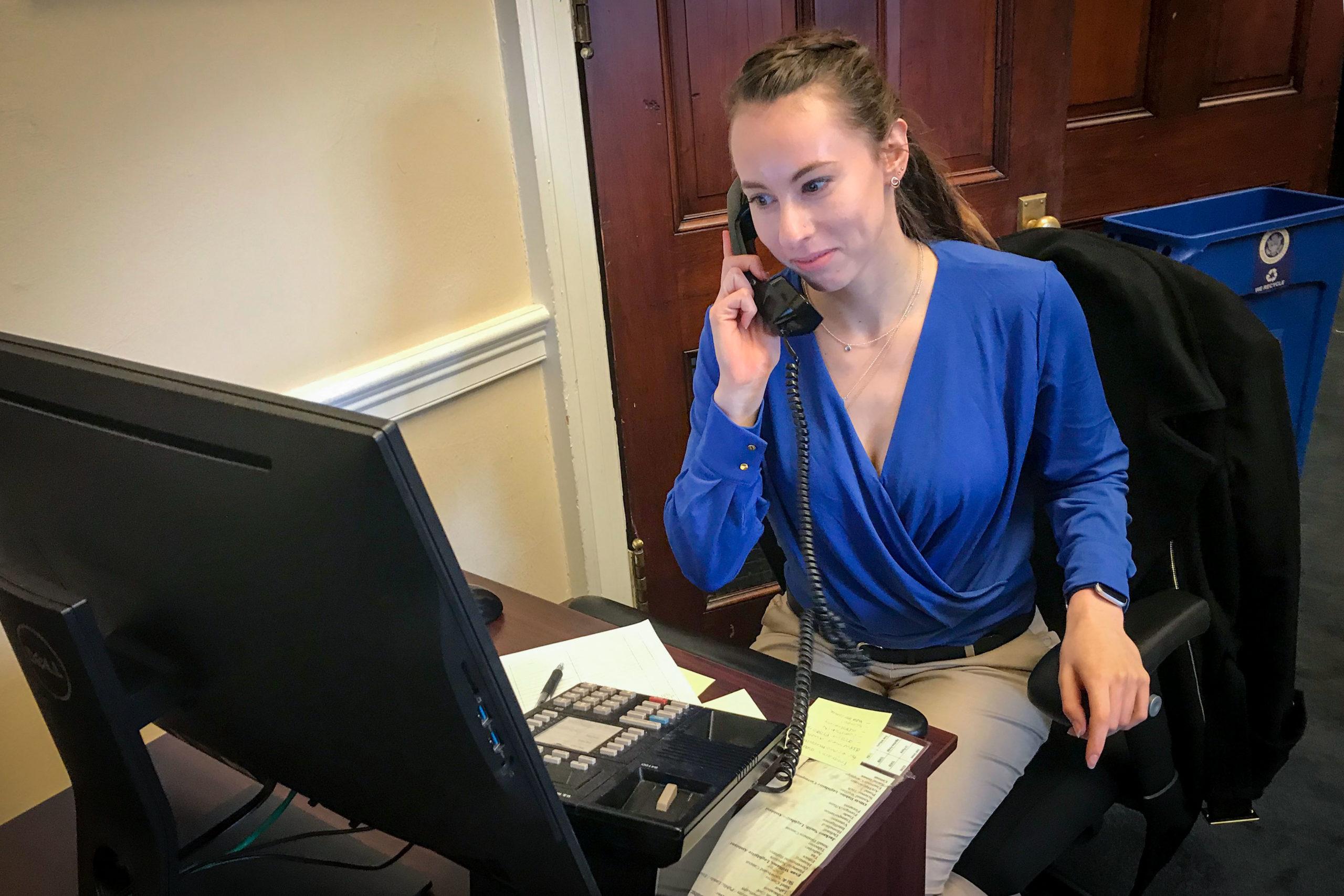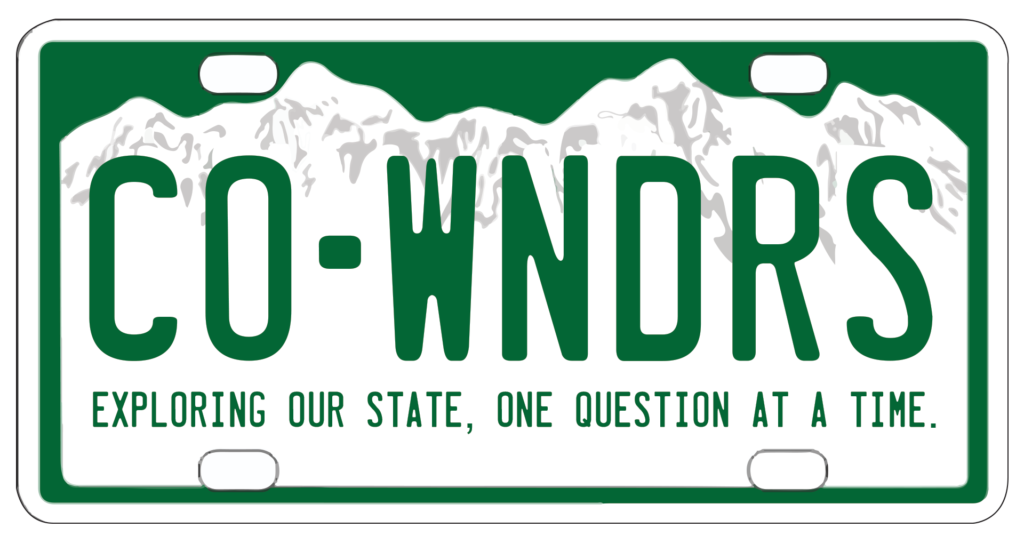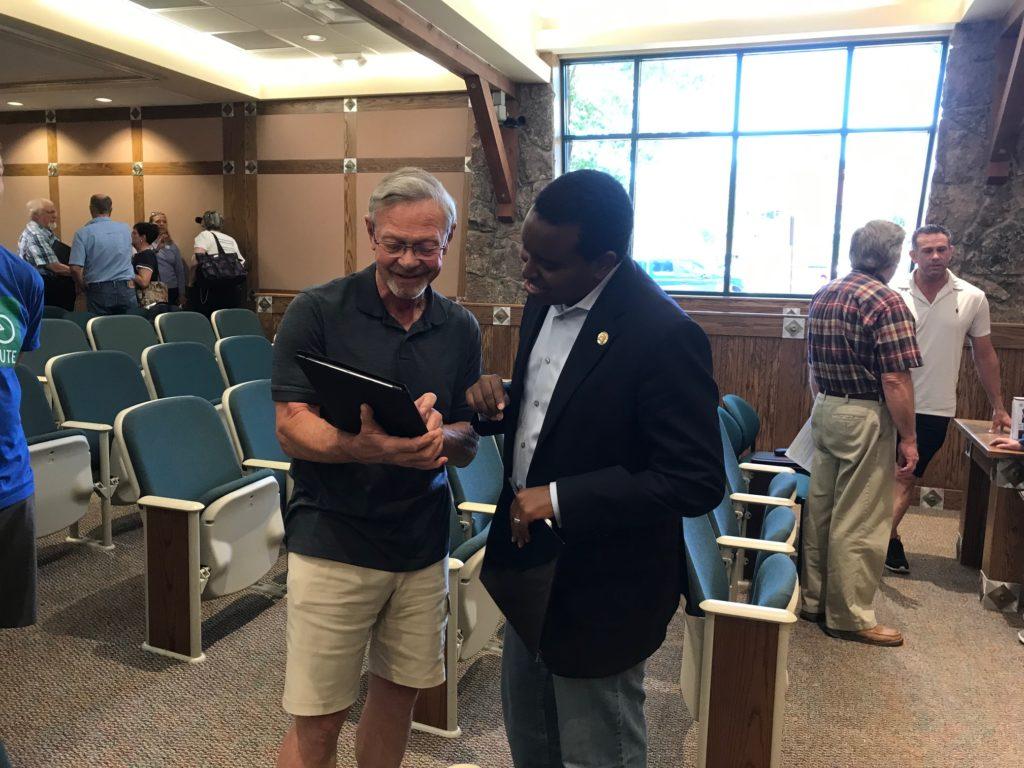
Since the beginning of the Republic, people have reached out to their local representative for help with a federal agency, to share an idea, or to voice their opinion on a pressing issue of the day. That’s what Peter Foley from Castle Pines wanted to do when he picked up his phone to call one of his senators.
“I had called Cory Gardner's office and got put on voicemail,” Foley explained.
He’s called congressional offices before, during work hours, including Rep. Ken Buck and Sen. Michael Bennet, and always spoke to a person on the other end. After he called a couple of times he decided to leave the Republican senator a voicemail, but Foley wondered if anyone ever listened to it.

Short answer: Yes.
All those calls and letters are logged, and when needed, responded to. Usually, a weekly summary is given to the congress member.
In a typical week, Matthew Atwood, the press secretary for 3rd District Rep. Scott Tipton, said the office gets around 50-100 calls a day. But on a really busy day — say during impeachment or the debate around the Affordable Care Act — that number could swell as high as 300-400 calls a day.
The numbers seem to track across other Colorado House member offices.
“We do our absolute best to make sure that some live person is answering the phone,” Atwood said. “I think maybe a couple of times at most all the lines have been filled with somebody on the phone, where it's had to go to voicemail. Even in those scenarios, we actively check the voicemails and respond as quick as possible.”
The same goes for Gardner’s office, according to a statement from spokeswoman Annalyse Keller.
“Nothing is more important to Sen. Gardner than providing the best constituent service possible to all Coloradans,” she said. “Sen. Gardner’s offices have numerous individuals who answer incoming phone calls, and staff members review every voicemail the office receives, regardless of what time the message was left.”
Answering letters or emails, picking up constituent calls and listening to voicemails is all part of constituent work. It’s the bread and butter of being a congress member — responding and listening to ‘We the people.’

In Tipton’s office, Atwood said most people who call want to voice an opinion. It gets tallied up and then “the Congressman reviews that, just to kind of see where people are at.”
Those letters you write also make it to the desk of the boss.
Ryan Brown, Rep. Diana DeGette’s spokesman, said she’ll ask for a sampling of some of the letters the office receives each week (typically around 2,000). Over in Tipton’s office, Atwood said they responded to 125,000 letters in 2019 alone.
Worry it gets tossed aside in the congressional equivalent of a junk mail pile? Rest assured they can make a difference.
Freshman Rep. Joe Neguse said constituent feedback is “critically important.” It helps him reflect on his approach to an issue and gives him ideas for legislation. He recalled a letter he received from 10-year-old Ally Tumblin of Broomfield. She’s hearing impaired and wrote about a medical device not covered by the Affordable care Act.
“We took that letter and we visited with her mom who is an advocate in this space. And we ultimately introduced a bill called Ally's Act, which is a bipartisan bill to essentially add that device under the ACA,” Neguse said. “So a good example of constituent mail really having a dramatic and profound impact on the work that we do.”
Neguse has even been known to pick up a call or two in the office. He spoke with middle schoolers from Boulder when they called about the War Powers Resolution regarding Iran a couple of weeks ago.
Letters and calls from kids are easy to remember and enjoy. For Neguse, it’s also the messages of thanks that stick with him.
“It’s powerful. It reminds you why the work that we're all doing here is so important and why it's a privilege,” he said. Neguse encourages constituents to reach out in whatever medium they prefer.

But the best way to know your message gets heard?
According to Ashley Verville with Rep. Ed Perlmutter's office, face to face is best — to actually go to an event with your congress member. She pointed out that Perlmutter, for example, has a “Government in Grocery” program where he goes to a store and talks to constituents, and other offices hold similar events. Neguse takes pride in holding a large number of town halls. And for districts that stretch from the north to the south border of Colorado, telephone town halls are usually held.
Tipton acknowledged that an office will never hear 100 percent agreement on all the issues, but it is important to hear how legislation can affect people.
“Those are really appreciated, just to be able to tell that personal story of how people at home are impacted — positively or negatively — from what’s done,” Tipton said.
It may not always drive the outcome you seek, but now you know a little bit more about how your voice is heard by our elected representatives in Washington, D.C.









